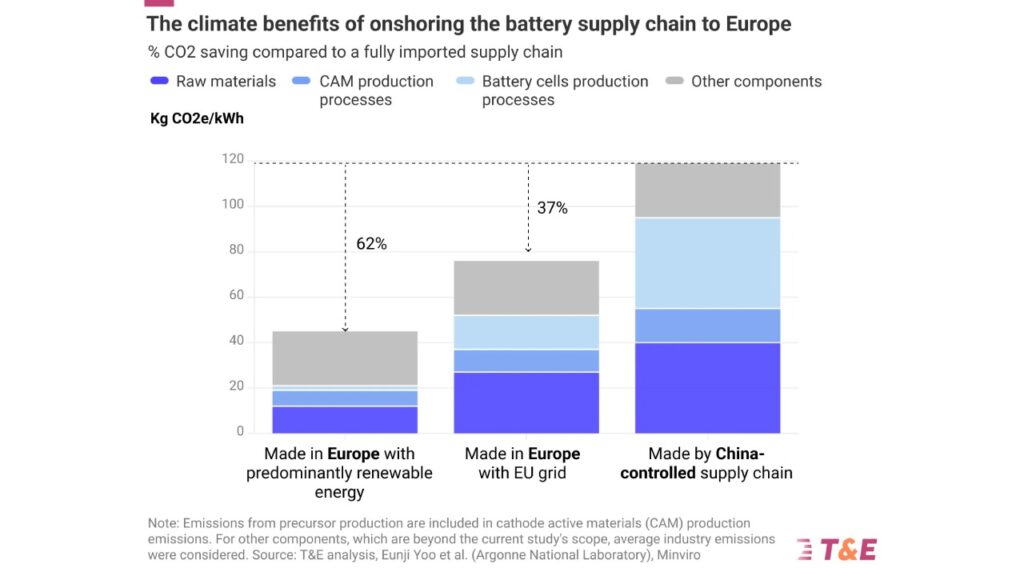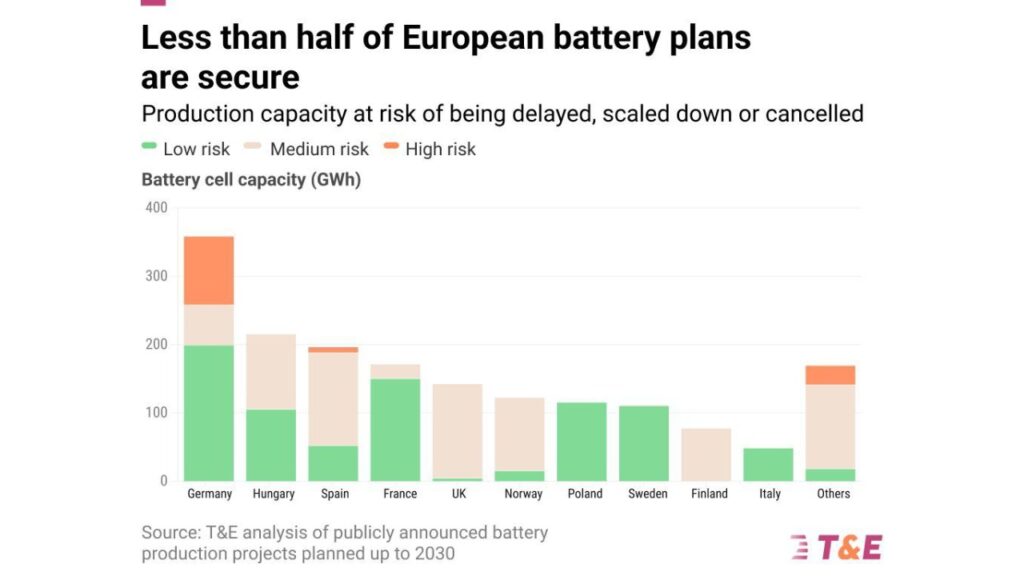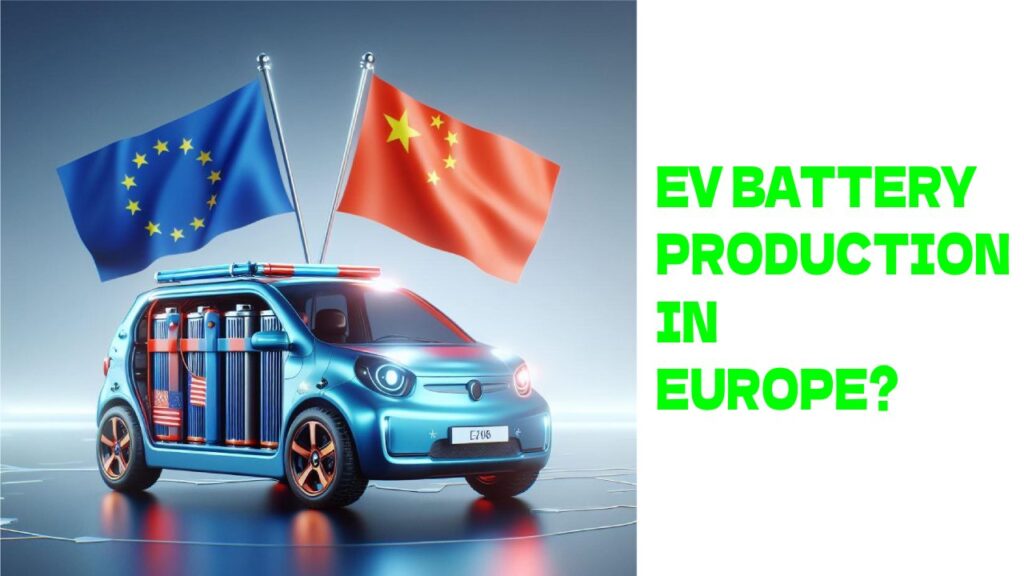This staggering number becomes valid when renewable electricity is used. Even without that, the Europe-made EV batteries will emit 37% less carbon emissions than the Chinese.
A detailed study by Transport & Environment (T&E) concludes that Europe-made EV batteries will be significantly more carbon scarce than China-controlled supply chain. That is a bold claim amidst concerns regarding over-dependency on China for the EV supply chain. We know that China controls a vast majority of production of battery components. This also includes manufacturing raw materials and minerals needed to create a Lithium-ion battery.

You might also like: U.S. Could Ban or Restrict Chinese Connected Vehicles
Europe-Made EV Batteries 60% Less Carbon-Intensive Than China
The study mentions that even using the current European grid, the carbon emissions could be reduced by 37%. This is equivalent to 133 Mt CO2 by 2030 in comparison to China. This number shoots up to 62% if we consider using renewable energy sources. Furthermore, Europe can become self-sufficient in battery cells by 2026, and manufacture most of its demand for key components (cathodes) and materials such as lithium by 2030.
Unfortunately, over half of gigafactory plans in Europe are at risk of either facing delays or cancellations. Thankfully, this number was over 66% last year. Hence, progress has been made in this direction. Still, a lot of government intervention is needed. The industrial policy blueprint should include maintaining the investment certainty (via the 2035 clean car goal).
With regard to securing gigafactory capacity since last year, France, Germany and Hungary have made the most progress. In France, ACC started production in Pas-de-Calais last year while plants by Verkor in Dunkirk and Northvolt in Schleswig-Holstein, Germany, are going ahead thanks to generous government subsidies. Finland, the UK, Norway and Spain have the most production capacity at medium or high risk due to question marks over projects by the Finnish Minerals Group, West Midlands Gigafactory, Freyr and InoBat.
This report also mentions that securing other key EV battery components is an even bigger challenge due to China’s influence and the EU’s nascent expertise. Europe could potentially produce 56% of its total cathode demand which is a critical component of a battery by 2030. By the same time, the EU could also fulfil its demand for processed lithium and secure between 8% and 27% of battery minerals from recycling within the region.

You might also like: Tesla and BYD Have 34% Share of Global Q1 2024 EV Sales
Learn Electric Cars Says
With the number of EVs growing across the globe, issues pertaining to sourcing battery components have become crucial. We have seen the U.S. tax credits depending on where an EV is manufactured in addition to where the battery and its components come from. Going forward, more nations strive to establish their own EV battery manufacturing industries. This will reduce dependence on a single country like China.
Apart from that, utilizing renewable sources of energy for production is also a key factor toward going carbon neutral in the coming years. The ambitious goals of carbon neutrality need addressal from all directions. We shall be on the watch out for further developments in this case.


Pingback: ต่อผม
Pingback: เรียนต่อจีน
Pingback: รับจัดงานอีเว้นท์
Pingback: เน็ต AIS
Pingback: ตู้แช่แข็ง
Pingback: SHOPEE สล็อต
Pingback: โปรโมชั่นและโบนัสที่ orcbet
Pingback: สีพ่นรถยนต์
Pingback: ระบบสมาชิก
Pingback: Magna Creations
Pingback: Cannabis
Pingback: lazywin888
Pingback: y2k168
Pingback: เว็บตรงฝากถอนง่าย
Pingback: Garage Door Repair in Vancouver
Pingback: กระเป๋าผ้าดิบ
Pingback: exchange crypto anonymously at vigorswap
Pingback: essentials fear of god
Pingback: ฆพ
Pingback: ครูเกอร์
Pingback: namayti57
Pingback: Buy Villa Phuket
Pingback: พลาสติกปูพื้นก่อนเทคอนกรีต
Pingback: Villa for Rent in Phuket
Pingback: yourexpo.kz
Pingback: ตรายางออนไลน์
Pingback: ถังน้ำตราบ้าน
Pingback: silicon reborn babies for sale